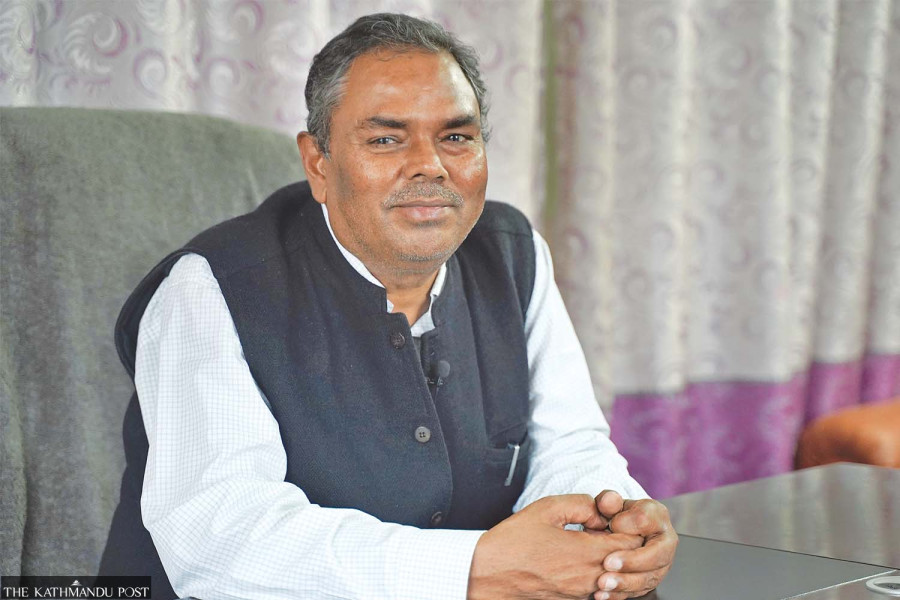National
Upendra Yadav re-elected JSP-Nepal chair, unopposed
Parties, where a single leader holds sway, are less accommodating and more autocratic, says Madhesh expert.
Post Report
Upendra Yadav was reelected unopposed as the chairman of Janata Samajbadi Party-Nepal (JSP-Nepal) on Wednesday.
Yadav was the sole candidate for the post during the general convention of the party held in Janakpur, the capital city of the Madhesh Province.
The general convention started Monday as per the decision the party made two months ago, before a major faction of the party broke away to form the Janata Samajbadi Party.
The party’s mega event is being organised shortly after the party split and its exit from both the federal and provincial governments.
Last month, one of the top leaders, Ashok Rai led a dissident group to break away from the party. Seven out of the 12 federal JSP-Nepal lawmakers and 30 central committee members formed the new outfit–Janata Samajbadi Party. Yadav, however, has moved court challenging the Election Commission’s decision to recognise the breakaway faction. A court verdict is pending.
After being re-elected to the party’s top post, Yadav took to social media to thank the national convention representatives, party leaders, and workers for electing him unopposed.
Yadav, a leader of Madhesi Janadhikar Forum, a right-based organisation in Madhesh, emerged as the political leader following the first Madhesh movement in 2007. Later he converted the organisation into a political party. Since his entry into politics, Yadav has been leading one or the other party in the last two decades of his political career.
As per the party’s election committee, aspirants have filed nominations for various positions. Twenty three candidates–17 men and six women–have filed their candidacies for the five vice-chair positions; six candidates are vying for two posts of general secretary; 12 candidates–nine men and three women– for three posts of deputy secretary; three have contested for one treasurer position; and 34 candidates have filed candidacies for seven posts of secretary.
Regional political parties in Nepal had emerged as prominent forces, particularly after the political change following the 2006 people’s movement. However, they have often been plagued by infighting, party splits and the dominance of a single leader or a coterie of leaders.
Experts pointed out several reasons why regional parties are dependent on a single leader. One major reason is that the founding leader usually controls the party’s resources from the beginning. By exploiting the resources, they create political loyalists within the party, who rarely challenge them, they say.
“When regional or marginalised groups form a party, it often becomes leader-centric,” Tula Narayan Shah, a political analyst, told the Post. “Parties, where a single leader holds sway, are less accommodating and more autocratic, and this weakens internal democracy within the party.”




 8.67°C Kathmandu
8.67°C Kathmandu














